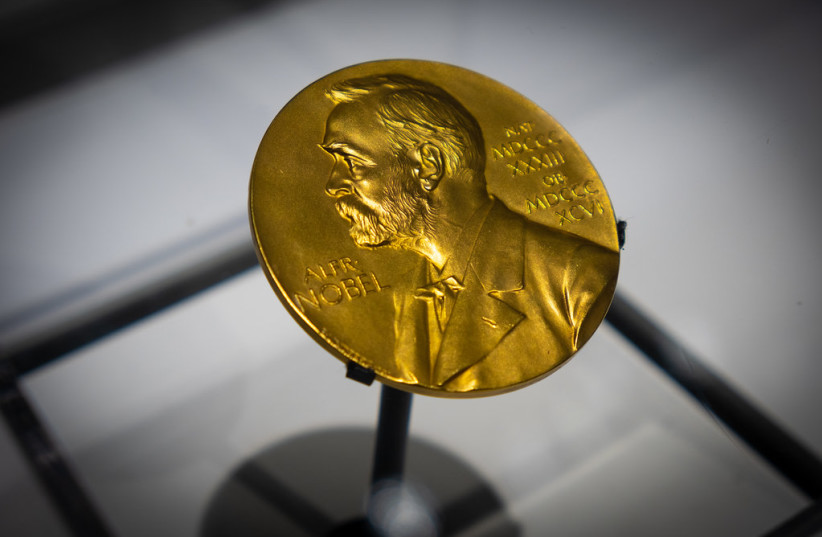Some 150 Jewish scientists living in the Diaspora have received the Nobel Prize since it was established in 1901 compared to only six Israelis. What has created the dearth of Israeli Nobel Prize laureates in the sciences?
The minuscule amount of money invested in civilian research institutes, answered materials science Prof. Dan Shechtman at the Technion-Israel Institute of Technology in Haifa while on sabbatical in the US. He was speaking on Thursday at The Jerusalem Post’s “Celebrate the Faces of Israel” conference marking Israel’s 75th anniversary of Independence at the capital’s Museum of Tolerance Jerusalem.
“We should have had many more Nobel laureates in physics and chemistry,” he said, noting that all of those who won did major research work abroad because they didn’t have the facilities here.
“Every US government department has research labs, so most Nobel laureates are from the US. Our Innovation, Science and Technology Ministry has a minuscule budget. We need much more investment. It will bring back emigrant Israeli scientists who are doing well abroad,” Shechtman insisted.
Sitting next to him on stage was 93-year-old Prof. Robert (Yisrael) Aumann – a mathematician at the Hebrew University’s Center for the Study of Rationality and one of the founding members of the Stony Brook Center for Game Theory who received his 2005 Nobel in Economic with the late US economist Prof. Thomas Schelling for their work on conflict and cooperation through game-theory analysis.

“The major value of Jewishness is Torah study; it is equivalent to all Jewish values and became an obsession with all intellectual activity. [Among non-Jews], when a rich man wanted to marry off a daughter, he sought a rich man to provide for the daughter. In Jewish culture, the man went to a yeshiva and asked who is the best Torah student.”
How can young people succeed?
Aumann said that young people always ask him what they should do to succeed.
“Some say hard work, perseverance, but I don’t think that’s the key. Do what you like – what interests you. You need some perseverance but the main thing is to do what pulls you.”
Shechtman agreed but added: “In whatever you do, try to become No. 1 in it, whether it is chemistry or playing the saxophone. Become the best in your subject, in your school, your field, your country and the world.”
Neuroimmunology Prof. Michal Schwartz of the Weizmann Institute of Science in Rehovot who on Independence Day received the Israel Prize in the life sciences concurred that one needs passion and to believe in what one does but you also have to invest much time and effort.
She believed for decades that the immune system and not necessarily aging of the brain was responsible for Alzheimer’s disease and other dementias when even her colleagues at Weizmann and around the world dismissed her theories. But she challenged old dogma and finally published her first paper in 1998 in the journal Nature that proved she was right. For many decades, it was believed that the brain was separate from the immune system because of the blood-brain barrier and that any immune activity in the brain was a sign of pathology.
“Don’t target therapy to the brain but to the immune system. Seven years ago, we founded a start-up for an immune-based therapy and have completed a preclinical study that will become clinical in Israeli, American and European medical centers. The aim is to arrest the progression of dementias and make Alzheimer’s a treatable disease,” said Schwartz.